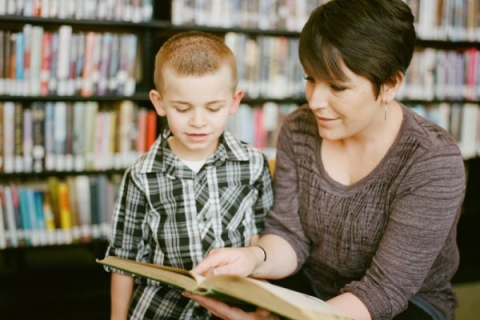

The report says that teachers were the unsung heroes of the Covid-19 pandemic, protecting the emotional security of school children
11 July 2022
5 min read
Far from taking a back seat during the Covid pandemic, teachers found themselves leading the way - turning schools into “the community coalface’ of the Covid-19 crisis.
That’s one of the findings from new research the University of Portsmouth, which also found that some of the most vulnerable children and young people, who were often able to stay in school, benefitted from a change in teaching style with more “one on one” time with teachers.
A ‘partial inversion of expectations’ was also seen in students who previously had been thought to be confident and settled. The report says children in this group were often found crying in corridors on return to school, unable to articulate their distress, and unable to cope with peer environments.
Study author Dr Emma Maynard, Senior Lecturer in the School of Education, Languages and Linguistics, said: “Teachers were often criticised in the press, but they weren’t sitting around in deckchairs during the lockdowns. They were the unsung heroes of the pandemic, often found standing in doorways supporting the families of children from their classes, taking food parcels and pencil cases.”
Participants were worried about mental health, emotional regulation, and for younger children, lost skills in playing, co-operating, and managing friendships. This is very much a hidden curriculum. Overall, our participants did not ignore the impact on academic learning, but they prioritised the emotional wellbeing and attitude to being in school as prerequisites for learning and catching up.
Dr Emma Maynard, Senior Lecturer in the School of Education, Languages and Linguistics
Researchers interviewed 28 teachers in 14 schools in England during the summer of 2021. It followed two national lockdowns that saw schools closed to the majority of pupils with lessons moved online.
They found that while teachers offered support and a “shoulder to cry on” to families in their community, there was no such resource for them. The report states these teachers had to shift their focus from the academic success of their students, to concentrate on their emotional well being whilst, at the same time, learning how to ‘upskill’ and teach lessons online.
Reflecting on the interviews with teachers, Dr Maynard said: “We were met with a clear and consistent message about the perceived impact of Covid-19 on children and these concerns were not focused on academic learning. Participants were worried about mental health, emotional regulation, and for younger children, lost skills in playing, co-operating, and managing friendships. This is very much a hidden curriculum. Overall, our participants did not ignore the impact on academic learning, but they prioritised the emotional wellbeing and attitude to being in school as prerequisites for learning and catching up.”
Teachers were often criticised in the press, but they weren’t sitting around in deckchairs during the lockdowns. They were the unsung heroes of the pandemic, often found standing in doorways supporting the families of children from their classes, taking food parcels and pencil cases.
Dr Emma Maynard, Senior Lecturer in the School of Education, Languages and Linguistics
The report, published in the journal Pastoral Care in Education, makes two major findings based on the research. Firstly, that the emotional security of school children should be prioritised before attainment. It says attention must be given to the ‘hidden curriculum’ in maintaining an emotionally secure learning environment and recovery for children, young people and school staff, and that this should take precedence over attainment. It also suggests that schools should be recognised as vital hubs for community support, with the pandemic highlighting the crucial role played by teachers in helping with safeguarding and the social needs of families.
The report, written with Nikki Fairchild (University of Portsmouth) and Amy Warhurst (University of Winchester) can be read here.
